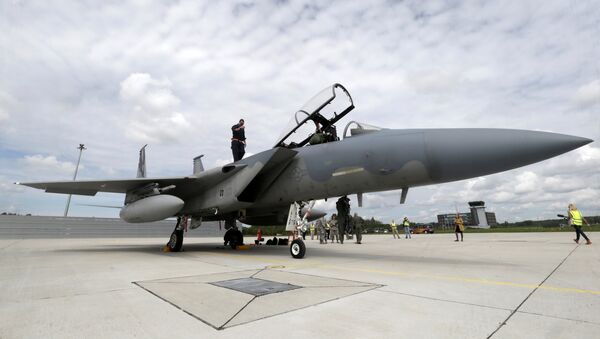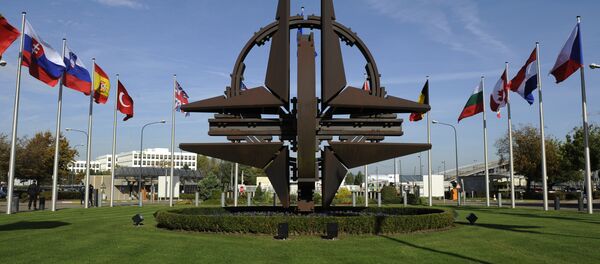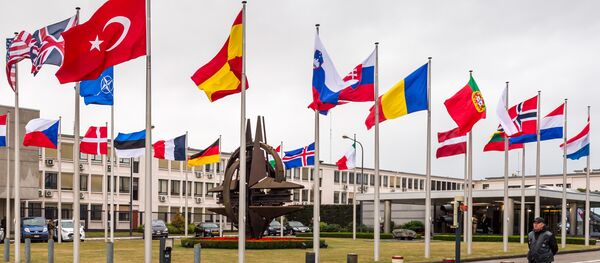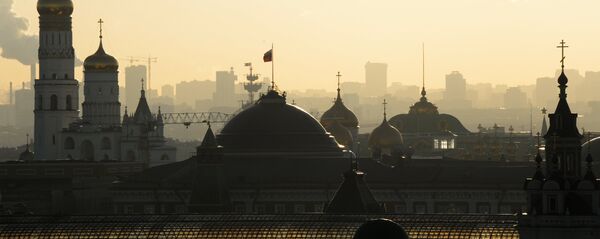The North Atlantic Alliance has used Russia's supposedly "aggressive" behavior and non-existent meddling in Ukrainian internal affairs to justify its increased military spending, intensified war-gaming and belligerent rhetoric, but this reasoning is faulty.
The bloc decided to go eastward long before Crimea reunited with Russia or Ukraine saw the first flames of the deadly civil war. In other words this strategy did not come in response to Russia's actions, it was devised decades earlier. The bloc would have moved eastward anyway, Alksnis insisted.
"Let me remind you that NATO's eastward expansion was launched in the 1990s. Crimea and Ukraine were a non-issue at the time, but the alliance welcomed several Eastern European countries into its ranks anyway. Less than a decade earlier the West promised Gorbachev that NATO would not move an inch to the East," he recalled.
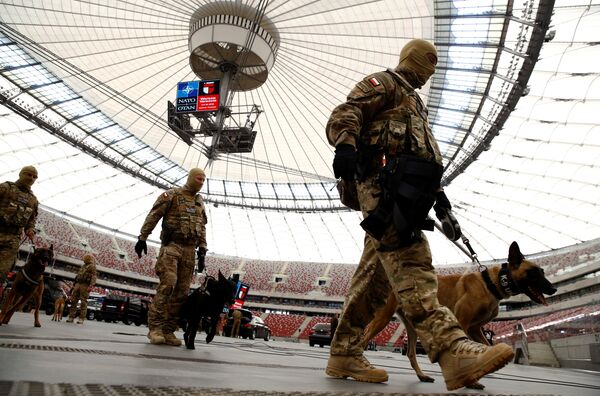
The so-called European Phased Adaptive Approach (EPAA) meant to create a missile defense shield over the continent is another worrying trend. The EPAA's second stage has recently been completed when an Aegis Ashore base came online in Romania earlier this month.
#Lavrov: We hope that common sense will eventually prevail within NATO and that our partners will stop building confrontational plans
— MFA Russia (@mfa_russia) 25 мая 2016 г.
Yet Russia does not intend to "overdramatize" the situation, Lavrov added. "We hope that common sense will eventually prevail within NATO and that our Western partners will stop building confrontational plans arising from their desire to ensure their own security at the expense of others," he noted.
Alksnis is less hopeful. He does not think that the alliance will stop before it achieves its key goal.
"No, they will not calm down. They, let's say, are 'boiling a frog' – they move ahead taking slow and small steps. They have one goal – they want to achieve first strike capability. We are not talking about nuclear weapons, but rather high-precision conventional armaments," the politician noted.
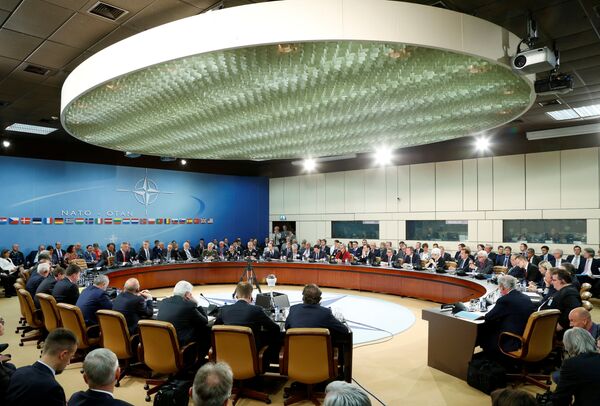
"They will say that their presence is rotational, that they are not violating the NATO-Russian Founding Act that prohibits NATO from establishing permanent bases in [Central and Eastern Europe]. But 'there's small choice in rotten apples.' They are indeed getting ready for a possible aggression against Russia," he maintained.
For Alksnis, the only way to prevent NATO from translating their strategy into action is for Russia to upgrade its military and build more weapons. Political analyst Igor Pavlovksy offered another solution to NATO's muscle-flexing, particularly in the Baltic region.
"Our response to 'scaremongering' should be purely peaceful. We should simply take all our economic interests away from the region. These include transit, as well as deliveries of coal and other energy resources. We should also pull the plug on all projects that we are carrying out in the region, including assembly facilities," he said.
